NNCI Activities Supporting COVID-19 Efforts
Despite having their facilities closed, NNCI sites are continuing to support efforts both locally and nationwide in the fight against the coronavirus. Read more about donations of PPE to local healthcare workers as well as ongoing research and educational efforts and other essential activities supported by NNCI facilities and staff.
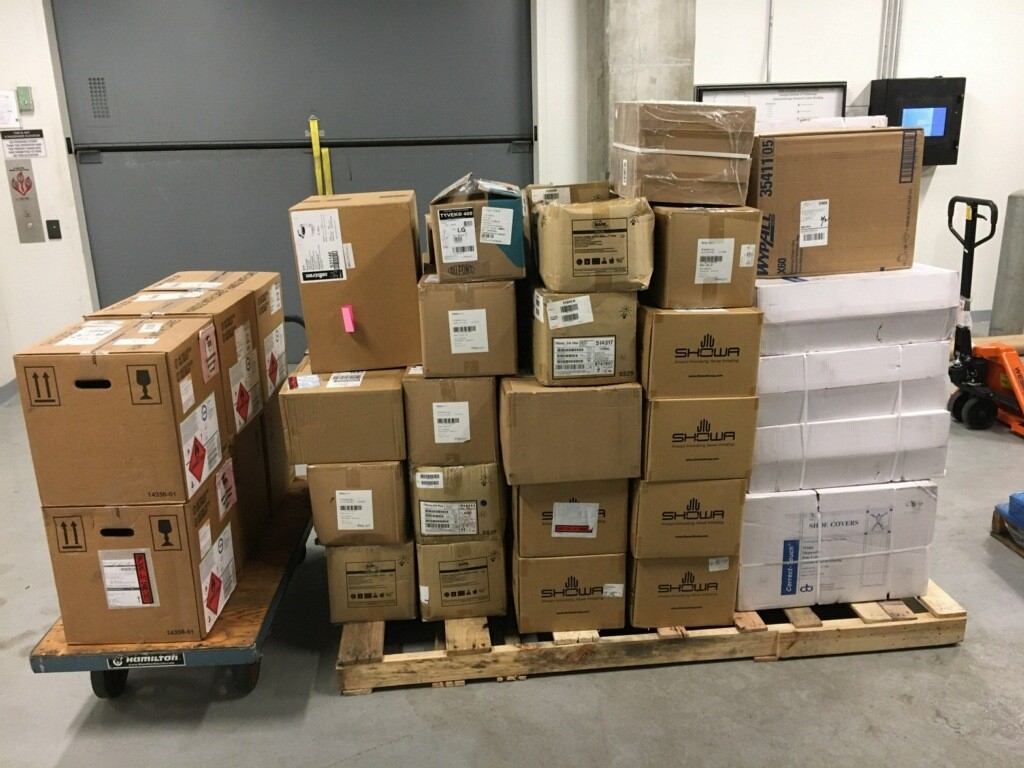
NNCI Facilities Donate Materials to Local Healthcare Workers and Hospitals
Most NNCI sites which have been closed due to stay-at-home restrictions have donated various personal protective equipment (PPE) such as gloves, shoe covers, face masks, respirators, and coveralls, as well as viral/biological reagents. These sites include Georgia Tech (waiting for pick-up in photo), University of Pennsylvania, Harvard University, University of Louisville, and University of Minnesota.
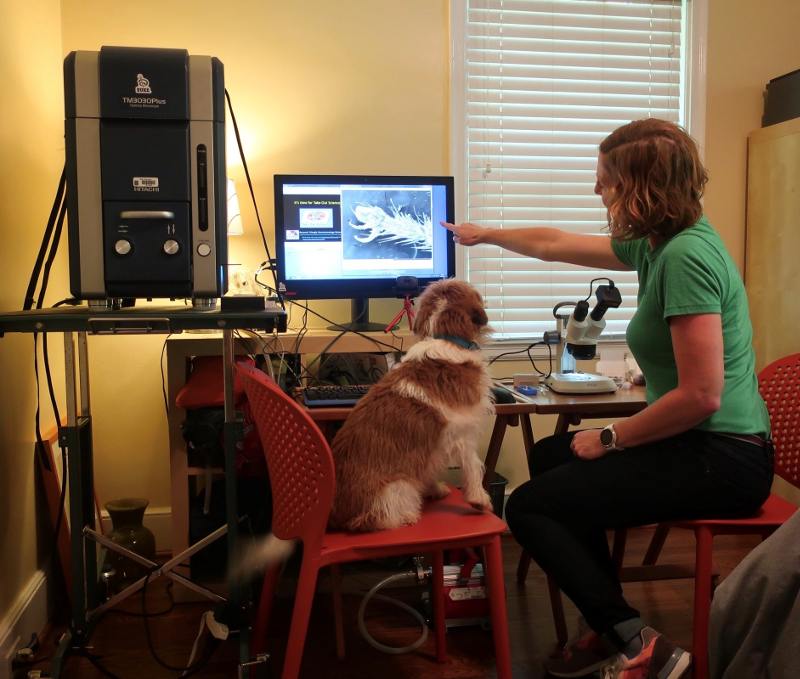
RTNN Launches Weekly "Take-Out Science" K-12 Event
The Research the Research Triangle Nanotechnology Network, a collaboration between Duke University, NC State University, and University of North Carolina at Chapel Hill, has initiated a weekly live stream event for K-12 students at home during the COVID-19 pandemic. The effort is led by Holly Leddy (with her canine assistant in photo), an electron microscope specialist on the staff of the Shared Materials Instrumentation Facility (SMIF) at Duke. Read more about it here.
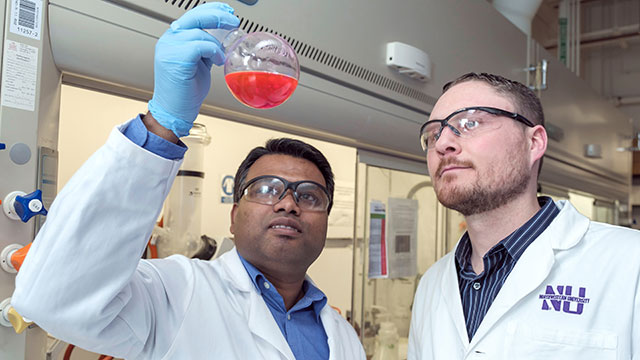
SHyNE's Peptide Synthesis Core Facility Developing Nanostructure Drugs for COVID-19
Researchers are developing new peptide-based therapeutics for targeting and disabling the coronavirus’ so-called “spike proteins.” Read the full story here. (Suvendu Biswas and Mark Karver in SQI's Peptide Synthesis Core Facility in photo.)

Protochips Providing Tools for Coronavirus Structure Determination
Company is Affiliated with RTNN Site of NNCI
Protochips is a manufacturer of analytic research equipment and supplies for the Transmission Electron Microscopy (TEM) market. The company provides products for biological and materials science researchers, and many of them are using the specimen support grid for research on the COVID-19 Novel Coronavirus, specifically understanding how it attaches to and infects human cells. One of the company's customers, the McLellan lab at the University of Texas, determined the 3D structure of the SARS-CoV-2 spike protein, a critical first step towards developing a vaccine. This reconstruction has now become widely used, including on the homepage of the CDC (above). Protochips has operations in Morrisville, NC and the Analytical Instrumentation (AIF) and Nanofabrication (NNF) Facilities at NC State University in Raleigh. NC State University has reviewed the production taking place in their facilities and has deemed Protochips as critical infrastructure and granted it continued access.
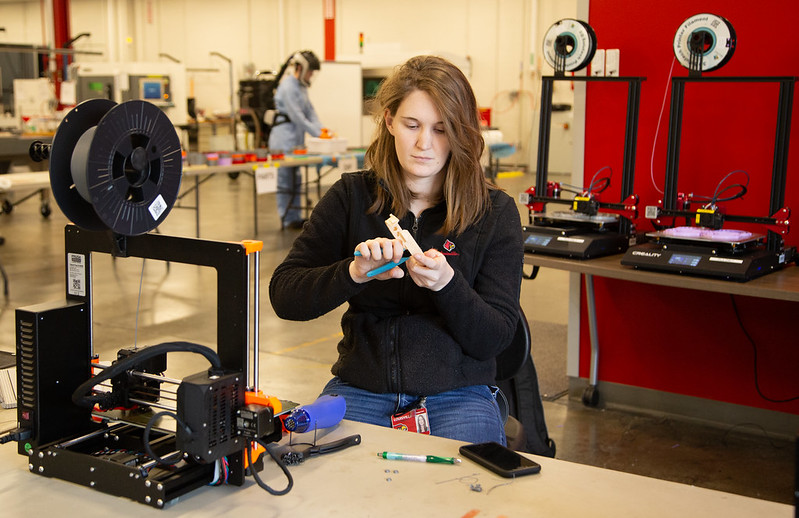
KY Multiscale Core Facilities Step Up to Fight the Coronavirus Pandemic
AMIST is Producing 3D Printed Test Swabs & Face Masks to Help Local Healthcare Providers Fight COVID-19
UofL’s Additive Manufacturing Institute of Science and Technology (AMIST) is proactively helping the local and regional community fight the Coronavirus pandemic by 3D printing much needed faceshields and test swabs. This initiative is a joint effort by Ed Tackett (Director of AMIST Workforce Development). Professor Sundar Atre (Faculty Director of AMIST) and numerous dedicated Speed School students. They have set up a small-scale production facility at AMIST and the adjoining Engineering garage. In a very short time, they have manufactured and delivered over 4,000 faceshields to requesting hospitals in the surrounding areas. They have pending orders for over 27,000. Their swab production capacity is 900 swabs every 2 hours. Read more and watch video here.
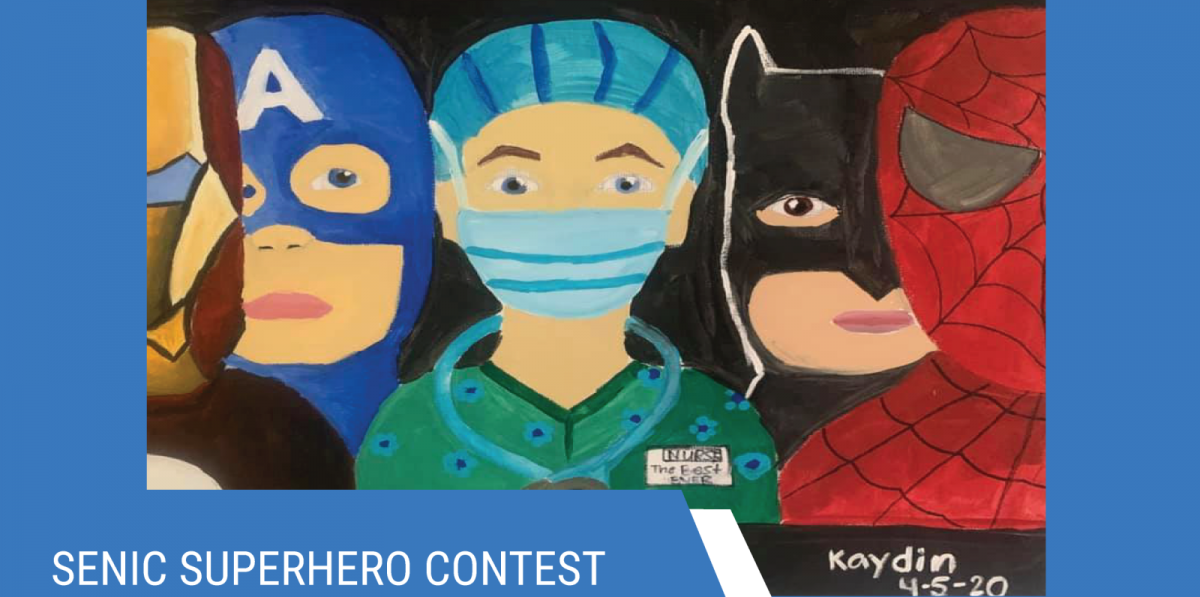
SENIC Sponsors Art Contest to Honor Coronavirus Heroes
The Southeastern Nanotechnology Infrastructure Corridor (SENIC) is sponsoring an art competition that challenges local area middle and high school students to create drawings/cartoons that depict our local heroes as Nanotechnology Superheroes. Scientists and doctors are already using nanotechnology to fight against disease. Students are asked to research nanotechnology using provided online resources and tell a story about real or fictitious heroes who use nanotechnology to protect themselves or others, or to combat diseases such as COVID-19.
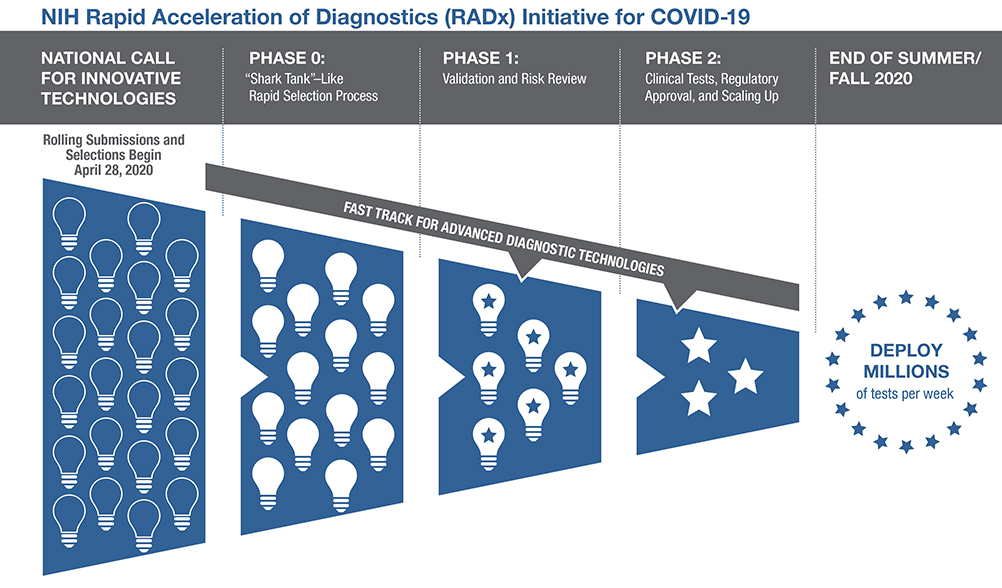
NIH RADx Program Supported by SENIC at Georgia Tech
The National Institutes of Health (NIH) has announced the RADx (Rapid Acceleration of Diagnostics) program. The $500M COVID-19 Testing Challenge will be supported/managed by the NIH POCTRN network, a network of 4 centers and a coordinating office. One of these centers is the Atlanta Center for Microsystem-Engineered Point-of-Care Technologies (ACME POCT), led by Emory University and Georgia Tech, and supported by the SENIC site of NNCI. The goal of this center is to push point-of-care technologies from the lab to clinical applications quicker. Via supplemental funding, this center will now support as many as 10 Phase 1 teams selected in the new RADx solicitation. Georgia Tech's SENIC core facilities will be available for design testing and prototyping if needed. Read more about the RADx solicitation and application information or the Georgia Tech press release.
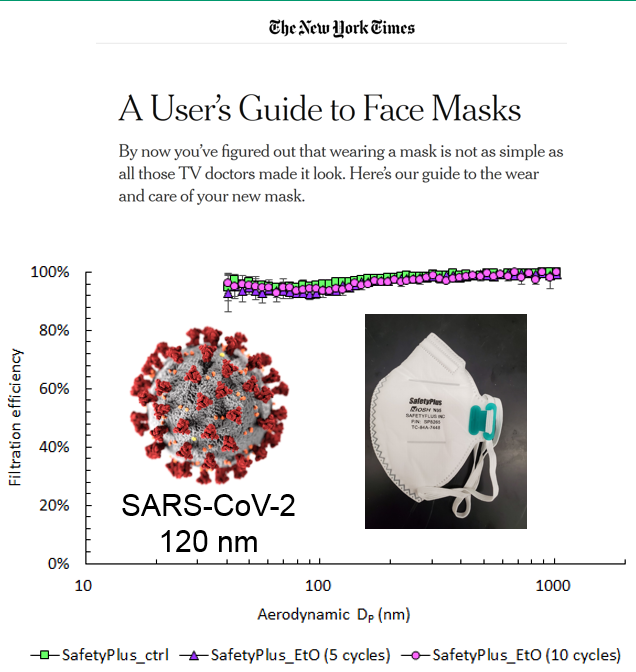
NanoEarth Researcher Evaluating Respirators and Mask Materials
Since March, NanoEarth's Deputy Director Linsey Marr, an expert in the airborne transmission of infectious disease, has been testing the efficacy of sterilized N95 respirators and alternative mask materials in filtering out particles. The rapid science experiments conducted by Marr's team aim to help quantify how well these forms of personal protective equipment and homemade face coverings shield their wearers against COVID-19, especially in the face of shortages. This work has been featured extensively in news articles from various sources including several New York Times pieces and in a Virginia Tech news article. All of this work is being done in NanoEarth facilities.
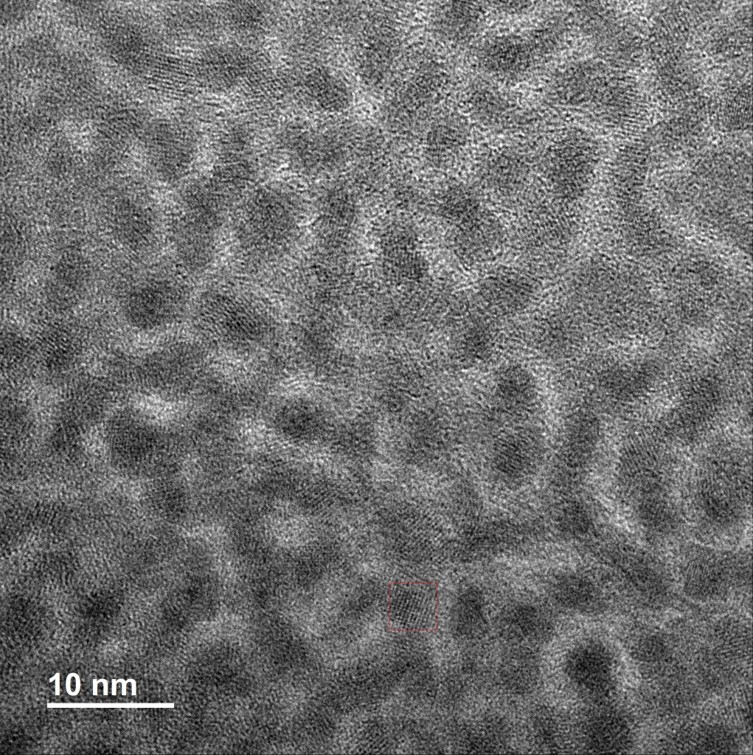
TNF Supporting COVID-19 Sensor Research
Dr. Kyle Michelson is a research associate in the department of chemistry, UT Austin. He and his group are trying to develop a detector/sensor for the novel coronavirus which causes COVID-19. The research involves making a sensor with gold decorated with graphene, attachment of an antibody, and detection of a captured virus using Raman spectroscopy. The graphene quantum dots of the size of 2-3 nm required for the detection have been made, and TEM images have been obtained using one of the electron microscopy tools at TNF.
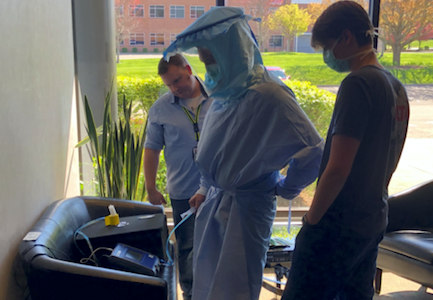
NanoEarth Supports Multiple COVID-19 Projects
NanoEarth co-PI and director of the Nanoscience degree program, Marc Michel, is using his expertise in inverse stereolithography, a type of additive manufacturing (3D printing), for two development purposes: 1) to design and fabricate 3D printed adapters that convert snorkel masks into reusable passive respirators with viral filters; and 2) to address shortages of COVID-19 test swabs. Testing includes mechanical properties and bench scale tests. Michel is working towards scaling up fabrication to meet regional testing needs. Additionally, NanoEarth Assistant Director for Innovation and Entrepreneurship, Matthew Hull, is leading an effort to develop a kit for rapidly converting surgical helmet systems into integrated powered air-purifying respirators (PAPRs). The PAPR retrofit kit is being evaluated for use in settings where direct exposure to CoVID-19 aerosols are likely. Hull’s team has fabricated a prototype and tested its performance using quantitative fit testing with the Naval Surface Warfare Center and a 100 nm diameter silicon dioxide nanoaerosol challenge with NanoSafe, Inc. The solution is being shared with healthcare providers around the US. These efforts are summarized in a Virginia Tech news article.
NCI-SW Laboratories Study the Germicidal UV Treatment of N95 Face Masks
Impact on Removing Nano-sized Particles During Reuse of Masks Investigated
The NCI-SW LCnano Center at ASU (with teams led by Profs. Westerhoff, Herckes and Sinha) is going beyond just building UV treatment systems capable of disinfecting N95 masks. Local physicians and first responders indicated they were unsure about the capability of disinfected masks to perform equally well during subsequent reuse. The center tested removal of new and UV disinfected (1 and 10 J/cm2) N95 masks. The results showed the new and disinfected masks both achieved >97% removal of aerosolized particles in the 90 to 220 nm size range, similar to diameters of the coronavirus, and had no noticeable change in polymer structure or chemistry. This is reassuring, and the medical community have now asked for the UV treatment systems. At the same time the center has been considering feedback from the public, and been testing homemade face masks sewn using common cotton cloth fabrics. While not as efficient at capturing nanoparticles as the N95 masks, they remove between 30% to 60% of aerosolized particles in the 90 to 220 nm size range.
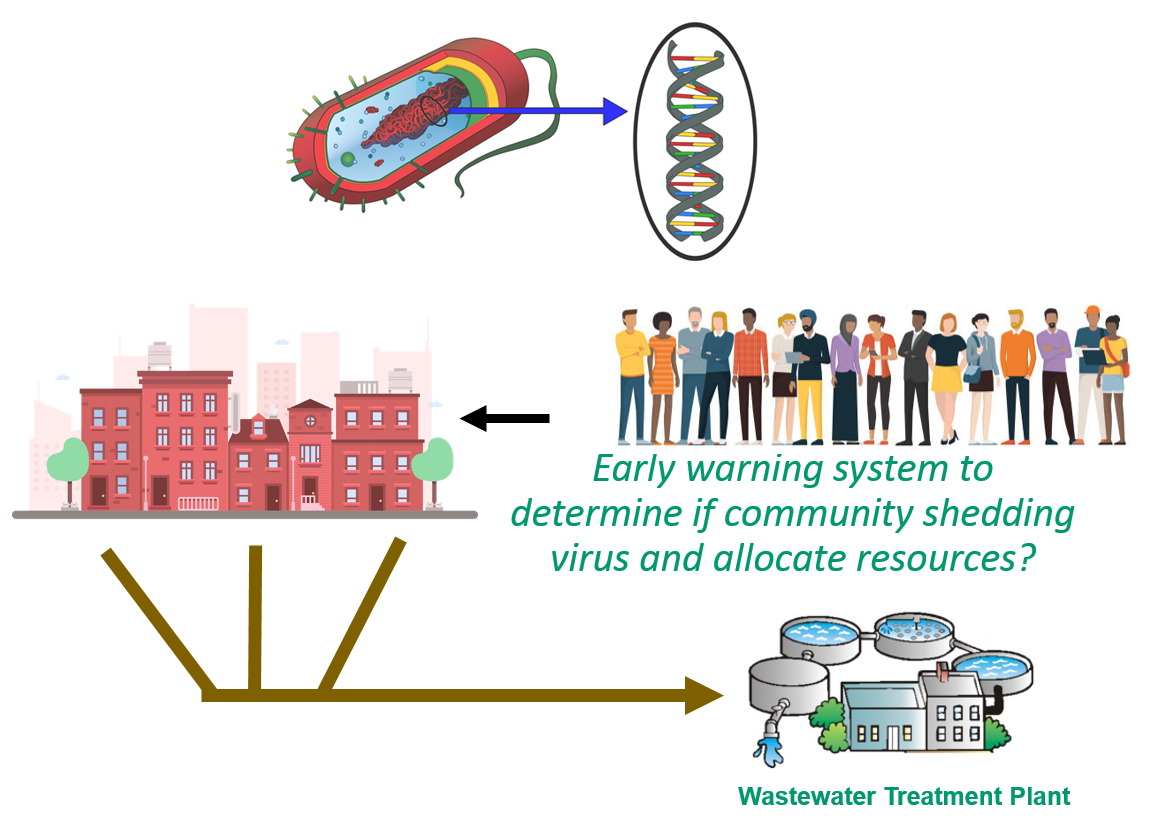
Monitoring for Coronavirus in Sewage led by NanoEarth Researchers
Building off of NanoEarth Co-PIs Peter Vikesland and Amy Pruden’s national and international network where they are using nanopore DNA sequencing to monitor for antibiotic resistance in sewage, they are building on the same network to monitor for SARS-COV-2 in sewage. This could provide a useful early warning system to identify communities shedding the virus and appropriately allocate resources. The initial network was built in part through NSF funding of a Partnership in International Research and Education (PIRE) grant (PIRE#1545756) and recently they were also awarded a Cyberinfrastructure for Sustained Scientific Innovation grant (CSSI#2004751) that will aid in building the appropriate cyberinfrastructure for this effort.
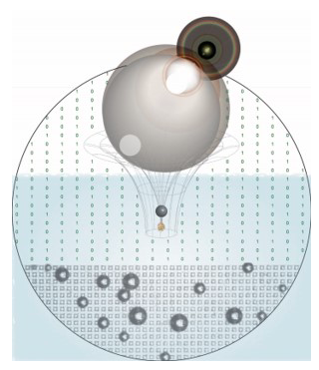
University of Pennsylvania Lab Developing Point-of-Care Test using MANTH Facilities
Ongoing research in Prof. Ping Wang's lab in the Perelman School of Medicine at Penn is aimed at developing tests that can be used for detection of the novel coronavirus. Bubbles generated in lithographic microwells (fabricated in MANTH's Singh Center) that contain a target of interest allows simple readout (using a smartphone camera, for example), yet quantitative (number and distribution of bubbles) point-of-care detection. Read more at the lab's website.
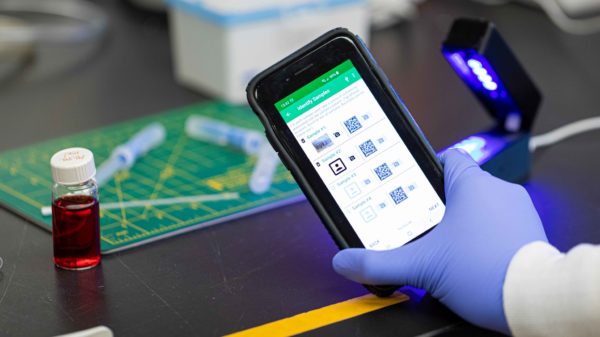
Coronavirus Test Development Aided by NNI Facilities
University of Washington Prof. Barry Lutz and his lab are working on multiple fronts to support the need for coronavirus testing. While this work uses mostly commercial-off-the-shelf components and paper microfluidics, the researchers have used the WNF cleanroom to prepare optical filter glass and the assembly is happening in the NanoES institute. Read the full story here.
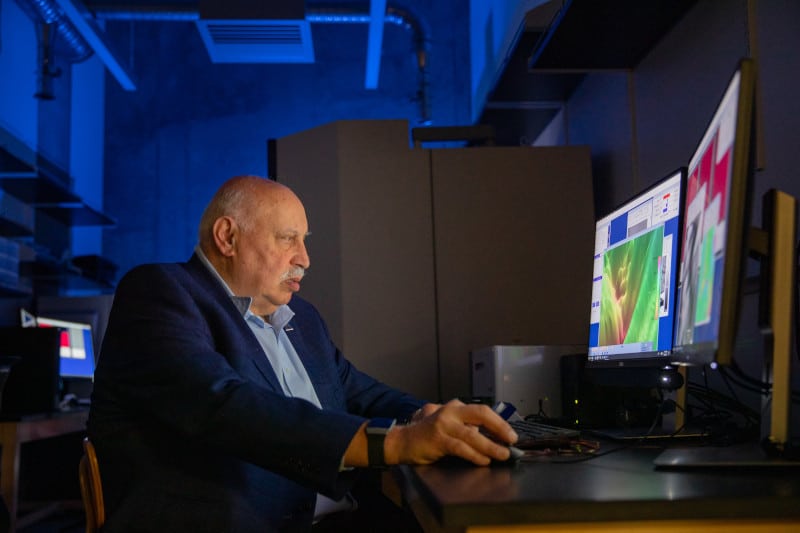
NCI-SW Supports Research on COVID-19 Detection by Users from Northern Arizona University
NAU professor Miguel José Yacamán, a physicist and materials scientist in the Center for Materials Interfaces in Research and Applications, has assembled an interdisciplinary team to develop a new diagnostic test for COVID-19. The project, “Development of a New Test for SARS-CoV-2 using Single Molecule Surface Enhanced Raman Spectroscopy,” was recently awarded a $200,000 grant from the NSF Rapid Response Research (RAPID) funding program supporting virus-related research. Read more about this project here.
Washington Nanofabrication Facility supports Matchstick Technologies
Matchstick Technologies, a startup company located at the University of Washington's collaborative innovation hub CoMotion®, is using WNF equipment to prepare components for their PIXUL instrument. Matchstick’s premier product, PIXUL (for PIXelated ULtrasound), is a tool that processes each and every well of a 96-well microplate consistently and quickly. This instrument is currently being evaluated for high-throughput COVID-19 diagnostic testing.
Cepheid Technology used for COVID-19 Rapid Testing
Company Co-Founder Kurt Peterson is a member of the NNCI Advisory Board

